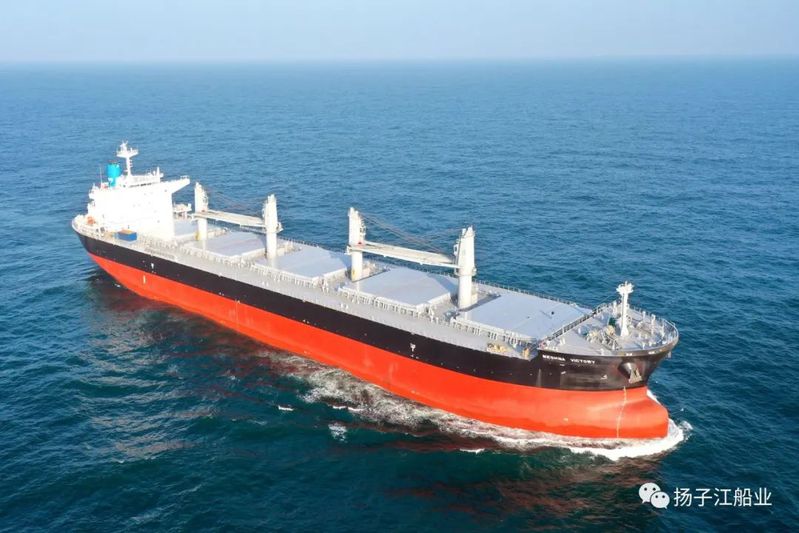- Messages
- 3,831
- Likes
- 2,049
Shipping Corporation to add 18 new ships to fleet
Contract signed with Chinese supplier to buy 4 bigger vessels.Aiming to enhance its capacity in transporting seaborne cargo, the state-owned Bangladesh Shipping Corporation (BSC) has taken an initiative to add a total of 18 new ships to its fleet in a short period.
All 18 vessels will be purchased with foreign loan assistance.
Out of the 18, the purchase of four bigger vessels -- including two mother bulk carriers and two crude oil mother tankers -- at a cost of around Tk 2,500 crore has progressed very far, with BSC already having signed a contract with a Chinese supplier.
BSC officials hoped that construction of these four new vessels would start within a couple of months and be completed in 20 months.
Apart from this, the state-run corporation also plans to use its own funds to buy two smaller bulk carriers.
State Minister of Shipping Khalid Mahmud Chowdhury, while addressing the 46th Annual General Meeting (AGM) of BSC as chief guest yesterday, informed that 21 vessels of different categories would be gradually added to the BSC's fleet.
The purchase of these ships is part of the government's plan to make BSC a self-dependent shipping firm, he said.
Currently, the BSC has 7 vessels in its fleet.
Two of them were purchased in 1987 while six new ships were purchased in 2018 after a pause of around 27 years, including three product oil tankers and three bulk carriers.
One of these six new ships, named "Banglar Samriddhi", was damaged in a bomb attack in a Ukrainian port last year.
Given the implementation of a number of coal-based power plants in Rampal, Payra and Matrabari, the BSC adopted plans to buy four heavy-capacity vessels to ensure an uninterrupted supply chain in transporting crude oil and coal for the sake of future energy security.
BSC Managing Director Commodore Md Ziaul Hoque told The Daily Star yesterday that the purchase of the four vessels, including two 114,000-tonne crude oil mother tankers and two 80,000-tonne mother bulk carriers, was being finalised.
He informed that they recently signed a contract with Chinese supplier China National Machinery Import and Export Corporation to build these four ships at a cost of Tk 2,500 crore.
Mentioning that the construction of these four ships would start within one or two months, he hoped that the vessels would start arriving after around 20 months.
Moreover, negotiations with the same Chinese supplier for the purchase of two 80,000-tonne mother product oil tankers -- which will be used to carry diesel oil and jet fuel imported by Bangladesh Petroleum Corporation (BPC) -- are also in the final stages, he said.
The two vessels will render services by carrying diesel oil and jet fuel after the completion of the Single Point Mooring (SPM) with Double Pipeline.
He added that negotiations were also ongoing with Australian and South Korean suppliers for the purchase of 12 cellular container vessels, each with 2,500 TEUs capacity under two separate projects.






